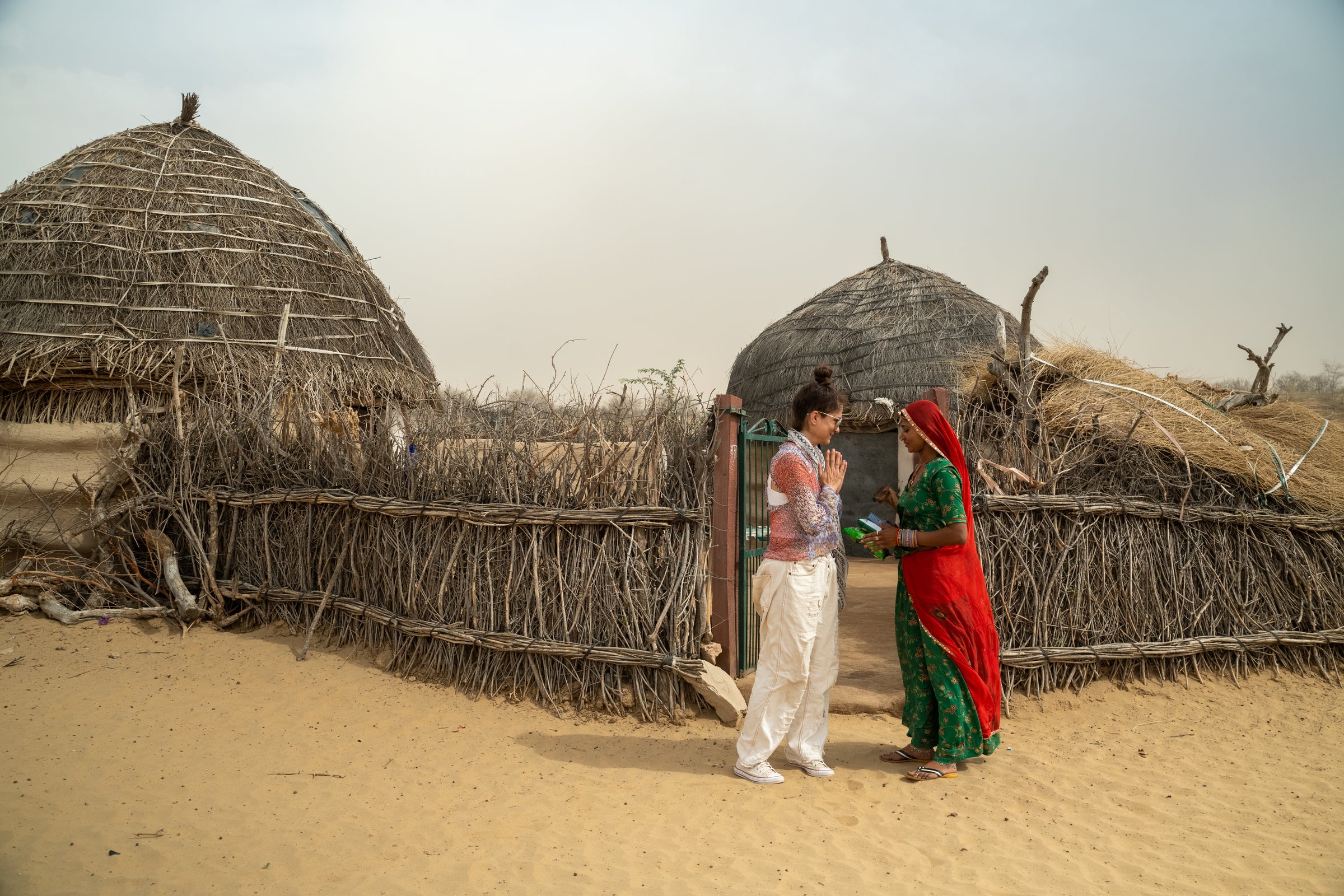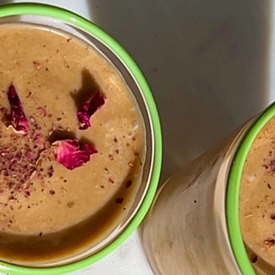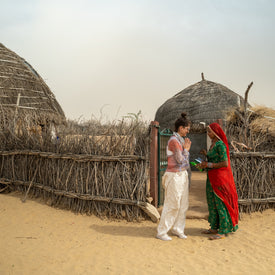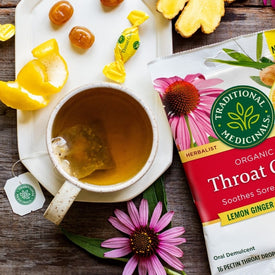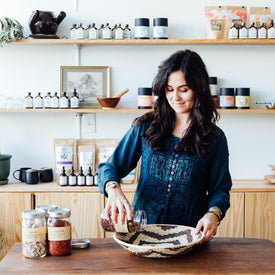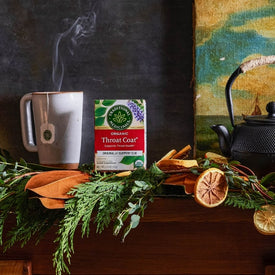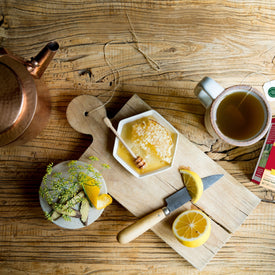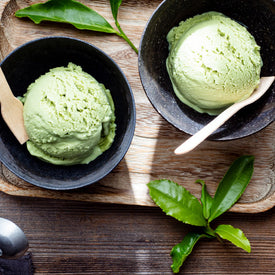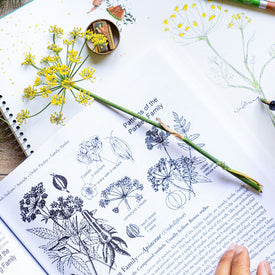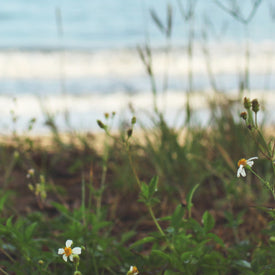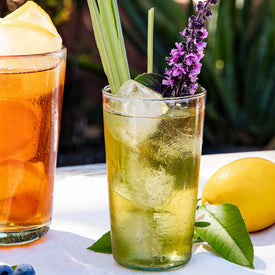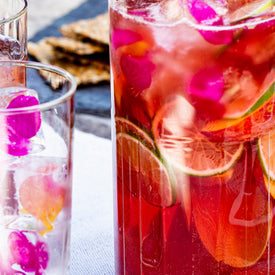Author: Jules Benefico
Join us for an insightful conversation with Nioma Narissa Sadler, Vice Chair of the Board of Directors, and Goodwill Ambassador at Traditional Medicinals®. Nioma is not only a driving force supporting the social impact work at Traditional Medicinals, but she is also the founder of WomenServe®, a nonprofit organization making a profound difference in the Thar Desert communities of Rajasthan, India. ®
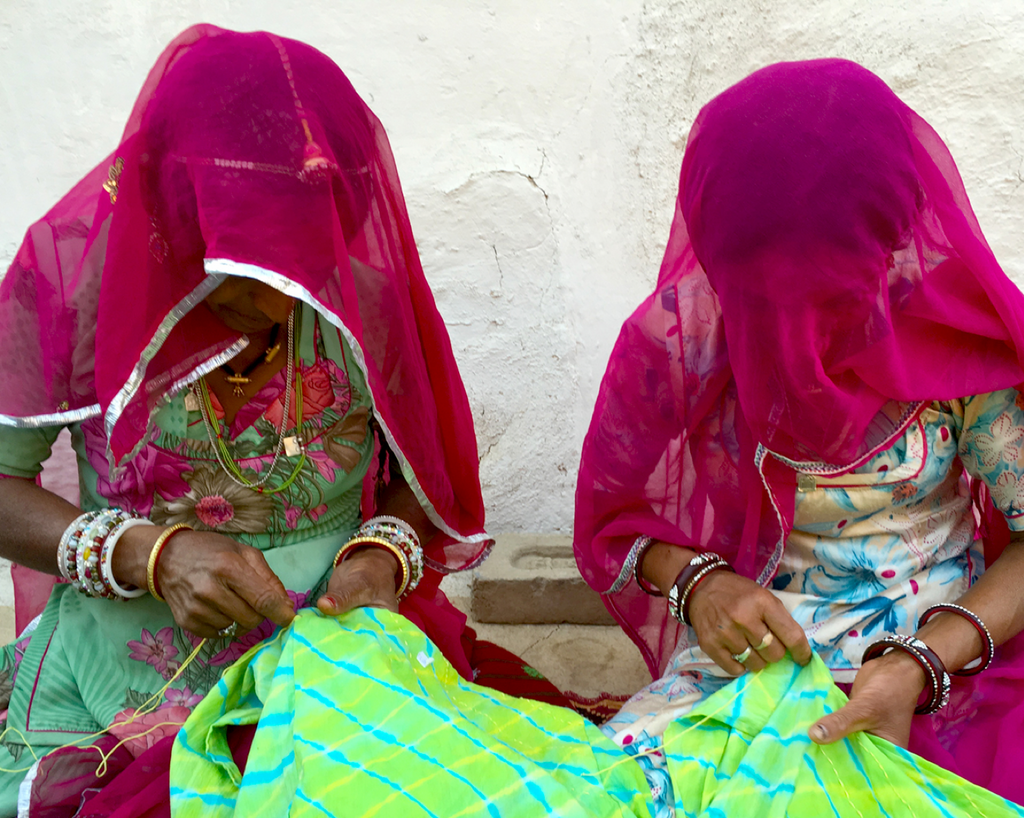
What was your inspiration behind WomenServe?
WomenServe was born out of a lifelong dream to give women and girls the freedom to choose what is possible in their life. When I first traveled to Rajasthan, India as the Traditional Medicinals Goodwill Ambassador, I witnessed the challenges faced by the remote senna farming communities of the Thar Desert, and I felt compelled to create an organization that could address the fundamental needs of these communities and empower women and girls to pursue their dreams.
Given Traditional Medicinals' commitment to supporting our source communities through local nonprofit partnerships, can you explain how Traditional Medicinals and WomenServe collaborate to support the Rajasthan community?
The partnership between Traditional Medicinals and WomenServe is rooted in shared values and a commitment to social responsibility. Traditional Medicinals supports our initiatives in Rajasthan, particularly in the senna farming communities. This collaboration goes beyond financial support; it involves active participation, advocacy, and a shared vision for positive change. Central to this collaboration is the commitment to centering the community, ensuring that the voices and needs of the people are at the forefront of every initiative.
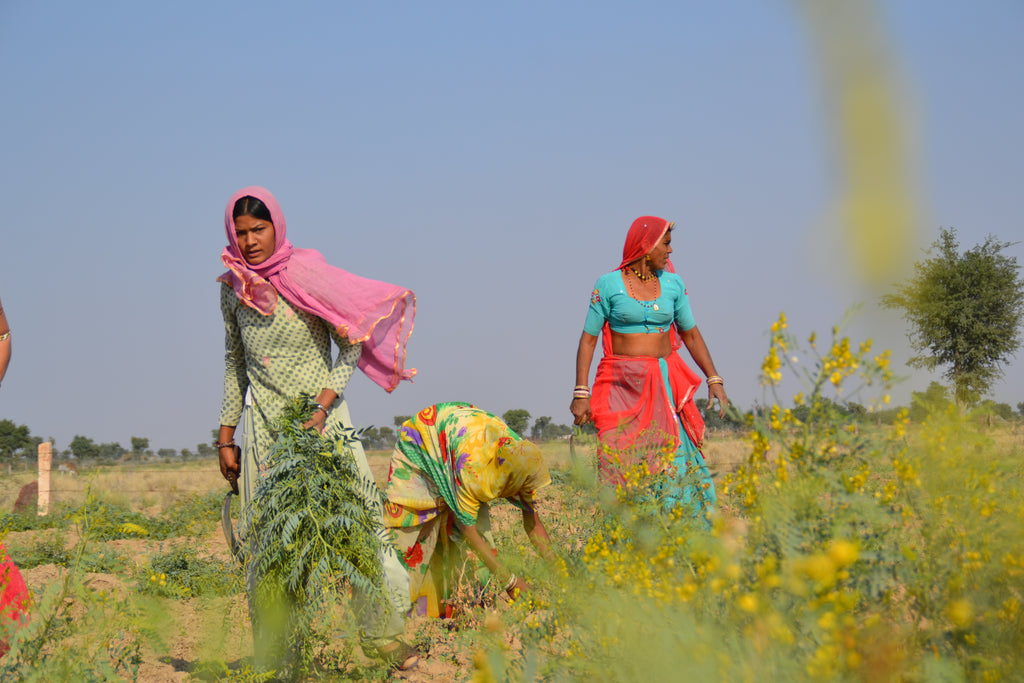
Community-centric approaches are vital. How does WomenServe continue to engage the community in all that it does?
Community engagement is at the heart of everything we do. Before implementing any program, we actively involve community members in the decision-making process. We listen to their needs, aspirations, and challenges. This ensures that our initiatives are not just well-intentioned but are tailored to the specific needs and context of each community.
Can you paint a picture of Rajasthan and the communities you work with?
Rajasthan is a challenging yet beautiful landscape – a desert characterized by heat and limited resources. The communities we work with are rural, scattered across the region, and often face water scarcity. Senna farmers, primarily women, play a vital role in the agricultural practices of the area.
Farming in Rajasthan can be challenging due to the harsh climate and limited water resources. These women, however, have embraced organic farming practices, contributing to the sustainability of their communities and the quality of senna used in Traditional Medicinals' products.
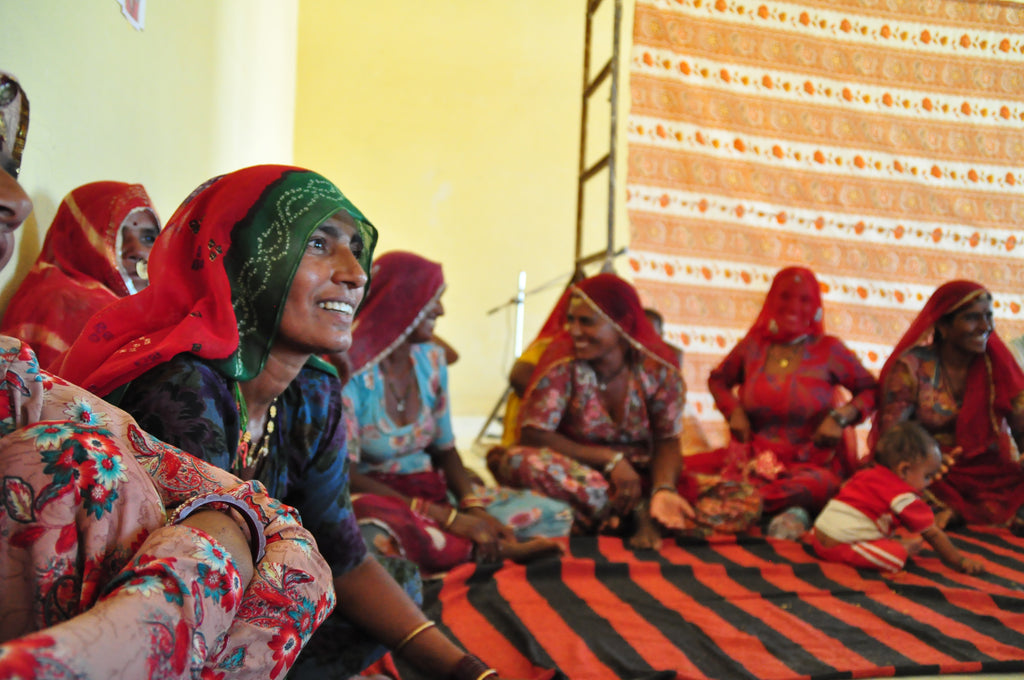
What is senna and how does organic farming benefit the community?
Senna is a resilient and drought-tolerant plant with beautiful yellow flowers. Organic farming ensures a higher quality senna plant and brings other benefits to the community. Organic products command higher prices in the market, and organic farmers are exposed to fewer synthetic pesticides and chemicals that results in healthier air, soil, water and overall community health.
What is daily life like for women and girls in the Thar Desert, and how do WomenServe's programs work together to empower them?
For many women and girls, daily life is a struggle. They can walk up to 10 hours a day in the scorching heat to secure water, limiting their ability to earn an income or pursue education. Our interconnected programs, spanning water access, education, health, and economic opportunities, aim to free up time for women and girls. By providing solutions to these fundamental challenges, we empower them with the tools and opportunities to choose their path in life.
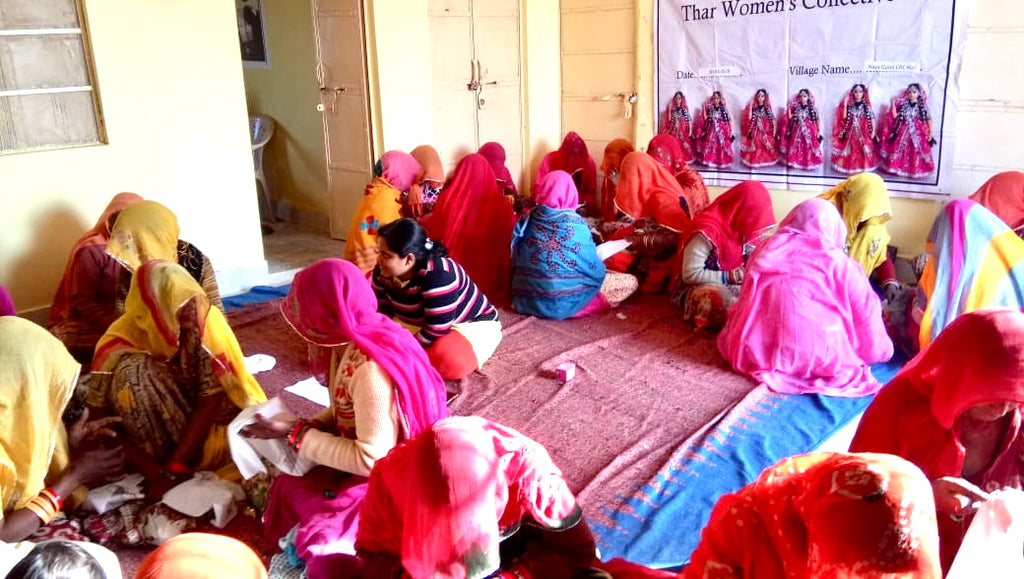
In your experiences working with WomenServe and witnessing the conditions in Rajasthan, can you share more about how the scarcity of water specifically impacts the lives of women and girls in these communities?
The scarcity of water in Rajasthan, especially within the Thar Desert communities where WomenServe operates, creates profound challenges for women and girls. With limited access to water, women undertake these long journeys, walking for hours every day, just to secure water for their families, crops, and livestock.
This not only consumes a significant portion of their time but also puts a strain on their physical and emotional well-being. Girls, too, are often burdened with this responsibility, leading to disruptions in their education as they dedicate hours to fetching water instead of attending school. All of this also perpetuates the cycles of poverty, gender, and limits opportunities for growth.
Through WomenServe's initiatives and our collaborative efforts, we aim to alleviate these challenges by first addressing the root cause – ensuring sustainable access to water for these communities. Once basic needs such as water are met, women and girls have the time to participate in programs that offer additional support, including education and economic development. Together these create a system to enable women and girls to become self-empowered and self-reliant.
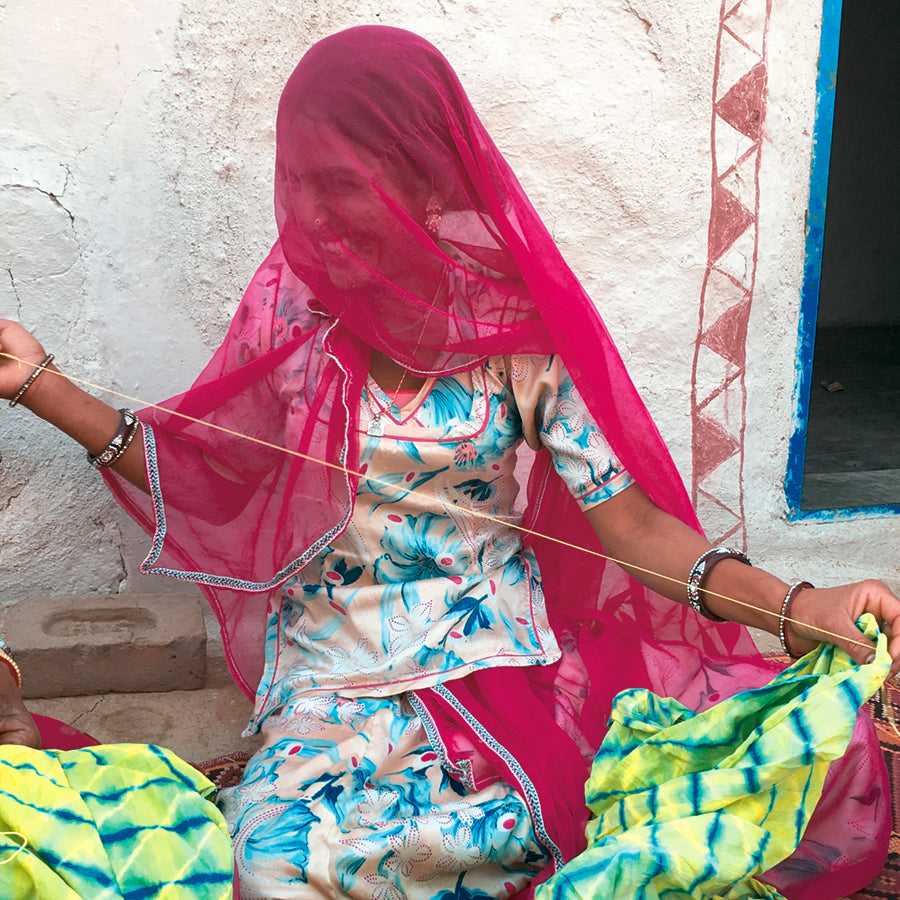
Having been involved in these communities for so many years, how have you seen the senna farming communities evolve?
The transformation has been remarkable. Through initiatives focused on water access, education, health, and economic empowerment, we've witnessed tangible changes. Women, who were once burdened by the daily struggle for water, are now emerging as leaders in their communities. With the support of Traditional Medicinals and WomenServe, these communities are breaking the cycle of poverty and creating a more sustainable future.
How does water scarcity intersect with gender inequity in Rajasthan?
Water scarcity exacerbates gender inequity in Rajasthan. Women and girls bear the brunt of the water crisis, spending hours each day fetching water, limiting their opportunities for education and income generation. Our programs aim to break this cycle by addressing the root cause – water scarcity.
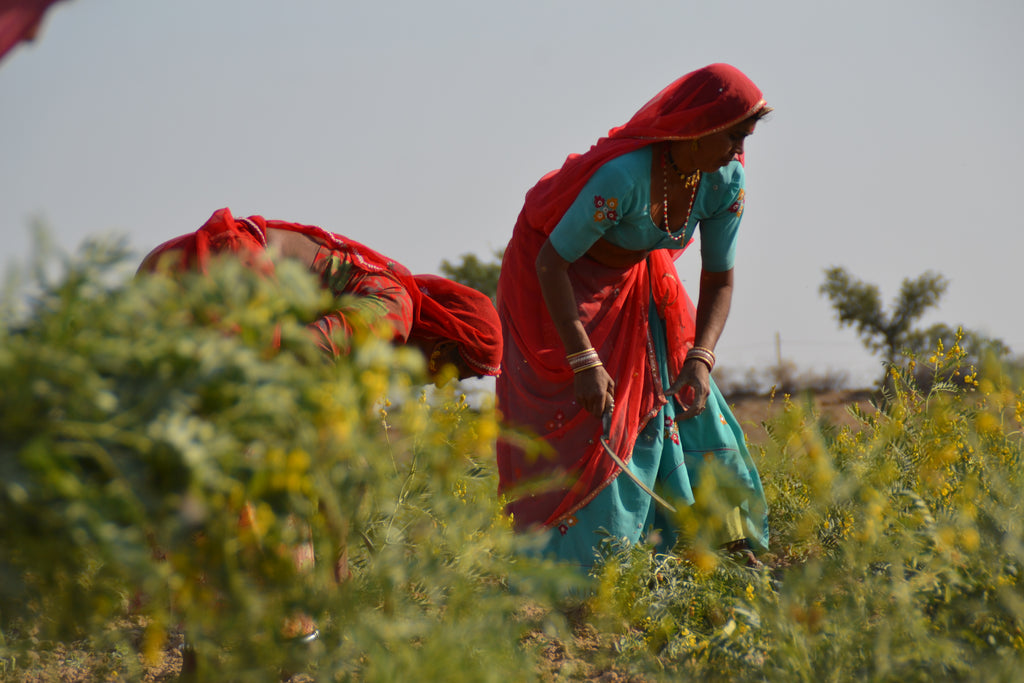
How has agricultural training has empowered women farmers to lead in their communities?
By imparting skills in Good Agriculture and Collection Practices (GACPs), we've not only enhanced farming practices but also developed leaders. The shift to organic farming brings health benefits, higher pay, and a secure market for their produce, creating a more sustainable and empowered community.
Looking ahead, what do you envision for the future of women and girls in these senna farming communities?
I envision a future where women and girls are not defined by the limitations of their environment. With sustained support, I believe these communities will continue to flourish. Women are becoming catalysts for positive change, breaking barriers, and shaping a more equitable future for generations to come.
Shifting focus to artisan projects, why did you initiate these projects, and what impact do they have on the women involved?
Artisan projects were initiated to provide women with alternative sources of income and skills development. The Handstitched Artisan Pillowcases, for example, are not just beautiful products but symbols of growth and resilience. When someone purchases these products, they contribute to the economic empowerment of these women, fostering independence and creating new opportunities.
And how can people be a part of these transformative initiatives? What kind of impact does a monthly donor have?
People can join our mission by donating, supporting artisan projects through purchases, or even just signing up for our mailing list to learn more. Becoming a monthly donor has a huge impact on our ability to provide ongoing support for these women and girls. A $30 monthly donation supports a woman for a year, providing access to crucial programs for water, education, mentorship, and economic opportunities. As a monthly donor, you play a pivotal role in creating sustained impact and transforming lives.
Thank you, Nioma, for sharing these insights into the incredible work of WomenServe and Traditional Medicinals. It's inspiring to see the positive impact on communities in Rajasthan and the transformative journey of women and girls.
It's my pleasure to shed light on the meaningful work we're doing together, creating lasting change in the lives of those who need it most.

